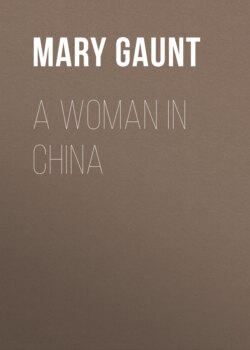Читать книгу A Woman In China - Mary Gaunt - Страница 18
На сайте Литреса книга снята с продажи.
CHAPTER IV—THE LEGATION QUARTER OF PEKING
ОглавлениеTable of Contents
A forgotten tragedy—The troops—“Lest We Forget”—The fortified wall—“No low-class Chinese”—The last thing in the way of insults—A respecter of power—Racing stables—Pekin s'amuse—Chinese gentleman on a waltz—Musical comedy—The French of the Far East—Chances of an outbreak—No wounded.
At Canton a few years since,” wrote Sir George Staunton, recording the visit of the first British Ambassador to the Emperor of China in 1798, “an accident happened which had well-nigh put a stop to our foreign trade. Evils of every kind fraught with this tendency are to be apprehended, and ought to be particularly guarded against, especially by a commercial nation. On some day by rejoicing in firing the guns of one of those vessels which navigates between the British settlements in India and Canton, but not in the employment of the East India Company, two Chinese, in a boat lying near the vessel, were accidentally killed by the gunner. The crime of murder is never pardoned in China. The Viceroy of the Province, fired with indignation at the supposed atrocity, demanded the perpetrator of the deed, or the person of him who ordered it. The event was stated in remonstrance to be purely accidental but the Viceroy, supposing it to have been done from a wicked disposition, still persisted in his demand, and to assure himself of that object, he seized one of the principal supercargoes. The other factories being alarmed, united themselves with the English as in a common cause, and seemed disposed to resist the intentions of the Viceroy who on his part arranged his troops on the banks of the river to force a compliance. It was at last deemed expedient on principles of policy, to give up the gunner with scarce a glimmering of hope that his life would be spared.”
Later on in a casual footnote he records that their worst fears had been realised, and the unfortunate gunner, given up, let us hope, not so much from motives of policy as to save the supercargo, had been done to death.
That incident, to my mind, explains the Legation Quarter of Peking to-day. Of course the Legation, in its present form, dates only from the Boxer rising, but the germ of it was there when the merchants of the assembled nations felt themselves compelled to sacrifice the careless gunner “from motives of policy.” One hundred and twenty years ago the Western nations were only a stage removed from the barbaric civilisation the Chinese had reached two or three thousand years before, but still they were moving onward, and they felt they must combine if they would trade with this rich land, and yet protect their subjects and their goods. And so they did combine, and there arose that curious state of affairs between the foreigners and the people of the land that has held for many years, that holds in no other land, and that has crystallised in the Legation Quarter of Peking.
Suppose in London all the great nations of the earth took a strip of the town, extending say from Marble Arch to Hyde Park Corner, and from Park Lane to Bond Street, held it and fortified it heavily, barring out the inhabitants, not wholly, but by certain regulations that prevented them having the upper hand. The thing is unthinkable, yet that is exactly what has happened in Peking. Against the Tartar wall, from the Chien Men to the Ha Ta Men, the nations have taken a parallelogram of ground all but a mile square, they have heavily fortified it, on three sides they have cleared a broad glacis on which no houses may be built, and they have there a body of troops with which they could overawe if not hold all the town.
